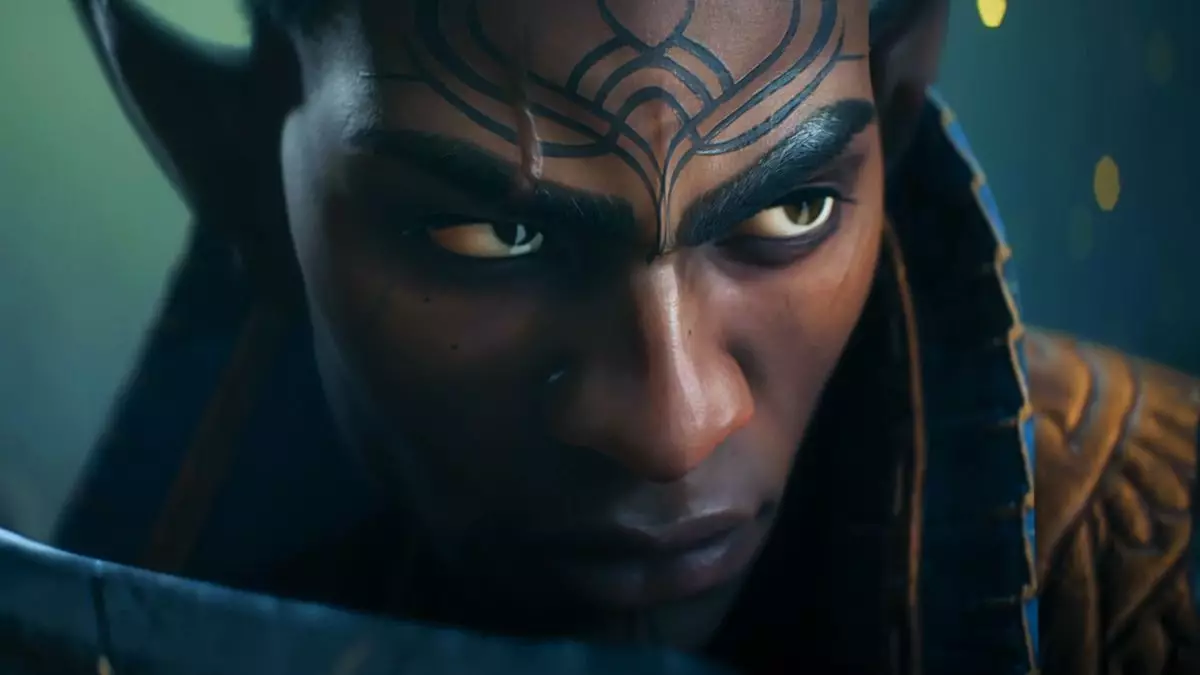The release of BioWare’s Dragon Age: The Veilguard seemed like a monumental event for both the studio and fans of the franchise, promising a return to the beloved RPG roots that initially garnered such a passionate fanbase. Rife with potential, the game boasted a meticulously crafted story and progressive gameplay mechanics that had many hopeful for its success. However, three months post-launch, the narrative told by publisher EA reflects a starkly different reality, raising questions about what went wrong that led to the game’s disappointing market performance.
Despite the overwhelmingly positive reviews from critics and players alike, EA reported that Dragon Age: The Veilguard’s sales figures fell significantly short of expectations—reportedly down by nearly 50%. This discrepancy raises eyebrows regarding the relationship between critical acclaim and consumer engagement in today’s dynamic gaming environment. Andrew Wilson, CEO of EA, underscored this contradiction during an earnings call, highlighting that while the game delivered a “high-quality launch,” it failed to resonate with a wider audience. This speaks to a fundamental issue within the industry: just because a game is well-made does not guarantee its commercial success.
EA’s CFO, Stuart Canfield, provided insight into the broader market dynamics at play, indicating a fundamental shift in how gamers engage with content. “The game’s financial performance highlights the evolving industry landscape,” he stated, suggesting that traditional models for storytelling and gameplay are becoming less effective in captivating a modern audience. As rival titles and diversified gaming experiences flood the market, even established franchises like Dragon Age must adapt or face potential obscurity.
This situation raises critical questions about whether fans’ nostalgic connections to a franchise can withstand new trends or if the industry’s direction is leading consumers away from the types of games they once loved.
The reported layoffs at BioWare following the disappointing sales show that the ramifications of these struggles extend beyond mere financial figures. They pose serious threats to the studio’s creative talent and long-term viability. This is particularly disheartening for long-term fans who have followed the studio through its ups and downs. The current state of affairs not only jeopardizes ongoing projects but also diminishes the potential for future installments in the Dragon Age franchise.
This cycle of failure raises concerns about the ability of studios like BioWare to innovate and regain their previous standing. The pressure to recalibrate business strategies in response to underperformance may stifle the very creativity that once defined them.
As BioWare navigates this turbulent period, the emphasis must now be placed on understanding and reframing its approach to storytelling and user engagement. Identifying what modern gamers seek in an RPG will be crucial for the studio’s future endeavors. Meanwhile, Dragon Age: The Veilguard remains a poignant reminder of how quickly tides can turn in the gaming industry, leading to a stark reevaluation of what it means to succeed in this competitive market.


Leave a Reply